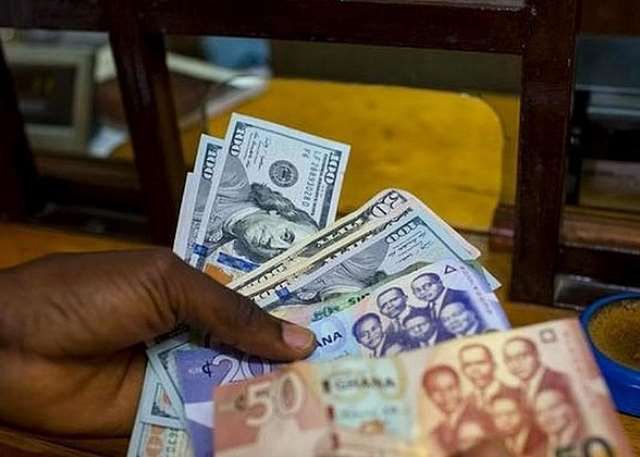The Ghanaian Cedi has experienced a notable surge in value against major international currencies, specifically the US dollar, British pound, and Euro, signifying a positive trend for the Ghanaian economy. As of May 9, 2025, data collated from Cedirates.com, a reliable source for currency and fuel updates in Ghana, reveals a strengthening Cedi across various exchange platforms. This appreciation reflects a potential improvement in Ghana’s economic fundamentals and could have a ripple effect on import prices, inflation, and overall economic stability. The observed exchange rates offer a comprehensive snapshot of the Cedi’s performance, providing insights for individuals, businesses, and policymakers alike.
The Cedi’s performance against the US dollar stands out as a significant indicator of its overall strength. Forex bureaus, acting as key players in the retail foreign exchange market, quote buying and selling rates of GHS13.00 and GHS13.70 per dollar, respectively. This relatively narrow spread suggests a stable and liquid market, further supporting the Cedi’s positive trajectory. Meanwhile, on the more formalized interbank market, where financial institutions trade currencies, the Cedi is trading at GHS13.19 for buying dollars and GHS13.21 for selling, indicating even tighter spreads and potentially larger transaction volumes. The marginal difference between the forex bureau and interbank rates underscores a healthy and efficient foreign exchange ecosystem in Ghana.
Turning to the British pound, the Cedi showcases a similar pattern of appreciation. Average exchange rates across different platforms hover around GHS17.22 for buying pounds and GHS18.34 for selling. The interbank market, specifically the Bank of Ghana’s platform, reflects a slightly stronger Cedi, quoting a selling rate of GHS17.52 per pound. This difference, though minimal, highlights the influence of the central bank on the foreign exchange market and its role in managing exchange rate fluctuations. The Euro also follows suit, with average exchange rates of GHS14.64 for buying and GHS15.59 for selling. Mirroring the trend observed with the pound, the Bank of Ghana’s interbank market offers a slightly more favorable rate for the Cedi at GHS14.82 per euro.
The emergence of digital remittance platforms like LemFi and Afriex has introduced another layer to the foreign exchange landscape, offering competitive rates for money transfers to Ghana. For US dollar transfers, LemFi provides a rate of GHS13.18 per dollar, while Afriex offers GHS13.77. For pound transfers, LemFi quotes GHS17.54, and Afriex provides GHS18.47. Euro transfers see Afriex offering GHS15.72 and LemFi providing GHS14.86. These rates, often more competitive than traditional banking channels, are particularly relevant for the Ghanaian diaspora, providing a cost-effective way to send money home. This competition amongst remittance providers contributes to a more dynamic and customer-centric foreign exchange market.
Furthermore, the report highlights the exchange rates applicable to digital subscription payments for services such as Netflix, Spotify, and Apple Music. These platforms, utilizing Visa and Mastercard for transactions, apply a consistent exchange rate of GHS14.18 per dollar. This standardized rate offers transparency and predictability for consumers using these services, simplifying their budgeting and expenditure tracking. The inclusion of this information underlines the growing importance of digital transactions in the Ghanaian economy and their impact on the foreign exchange market.
In summary, the Ghanaian Cedi’s recent appreciation against major currencies paints a positive picture for the nation’s economic outlook. The strengthening Cedi can be attributed to a variety of factors, including improved economic performance, favorable trade balances, and increased investor confidence. The diverse range of exchange rates available through forex bureaus, interbank markets, and digital remittance platforms reflects a vibrant and competitive foreign exchange market. This positive trend is likely to have a beneficial impact on import costs, potentially easing inflationary pressures and fostering economic growth. However, continued monitoring and analysis are crucial to understanding the long-term implications of these exchange rate fluctuations and their impact on the broader Ghanaian economy.














